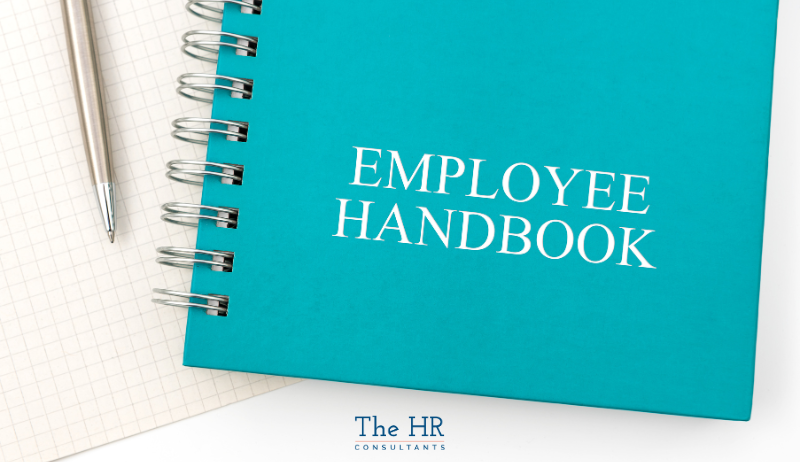"HR policies are essential for businesses of every size, playing a vital role in defining the expectations, rights, and responsibilities within the workplace.
These policies are not just good practice; they are often required by law in the UK. Non-compliance with legal requirements can expose your business to significant risks, including fines, an employment tribunal, and damage to your reputation.
The benefits of having well-structured, legally compliant HR policies extend beyond legal protection. They contribute to a positive work environment by setting clear standards for conduct, equality, and safety, helping to resolve workplace issues efficiently through established disciplinary and grievance procedures.
If you need support in reviewing or developing your company's HR department and policies, The HR Consultants are here to advise employers on the best practices to ensure compliance and create a positive workplace culture.
[addCTA blink=""/services/hr-documentation/"" title=""Is your people documentation up to scratch?""]
Table of Contents
Which HR Policies Are Required by UK Law?
Overview of UK Employment Law
Mandatory HR Policies Under UK Law
Highly Recommended HR Policies
Optional but Beneficial HR Policies
The Role of an Employee Handbook
Ensuring Compliance and Regular Updates
Need Help With Your Policies?
Frequently Asked Questions
Overview of UK Employment Law
Understanding the basics of UK employment law is essential for developing HR policies and procedures that are compliant and effective.

Employment legislation in the UK sets the framework for how businesses must treat their employees, covering a wide range of topics from health and safety to equality and employment contracts..
Understanding UK Employment Law
UK employment law covers several key areas, including the Employment Rights Act 1996, the Equality Act 2010, the National Minimum Wage Act 1998, and the Health and Safety at Work Act 1974. These laws are designed to protect employee rights, ensure fair treatment, and maintain safe working conditions.
Every HR policy within your organisation should align with these key principles to avoid potential disputes and ensure that your business operates within the law.
Updates and Compliance
Employment law in the UK is subject to regular updates, typically in April and October each year. These changes can impact a variety of HR policies, from grievance procedures to health and safety policies. It is important for businesses to review their policies and procedures regularly to ensure compliance with the latest legal obligations.
Keeping up with these changes not only helps in avoiding legal penalties but also promotes a fair and safe working environment.
Mandatory HR Policies Under UK Law
In the UK, certain HR policies are required by law to ensure that businesses operate fairly and within the boundaries of employment legislation.
These mandatory workplace policies provide the foundation for managing key aspects of the employment relationship.
Health and Safety Policy
If your organisation has five or more employees, you are legally required to have a written Health and Safety policy. This policy must include:
- Statement of Intent: Outlining your employer's commitment to maintaining a safe workplace.
- Defined Responsibilities: Clearly defining the responsibilities for health and safety within the organisation.
- Specific Arrangements: Detailing the specific arrangements in place to ensure these standards are met.
Regularly reviewing and updating the Health and Safety policy is essential to ensure compliance with current legal requirements and to address any changes in your workplace environment.
Disciplinary and Dismissal Policy
Clear employment contracts and written policies are necessary to outline the procedures for addressing misconduct and managing employee dismissals.
This policy should include clear steps for handling disciplinary issues, beginning with a written notice of the concern, followed by a meeting with the employee, and concluding with a decision based on the disciplinary rules in place.
Adhering to the Acas Code of Practice is important in ensuring that the policy is fair, legally compliant, and transparent, reducing the risk of disputes and potential claims of unfair dismissal.
Grievance Policy
Having a written grievance policy is a legal obligation that allows employees to formally raise concerns or complaints. The policy should be structured to follow the principles set out in the Acas Code of Practice, ensuring that employees understand:
- Grievance Submission Process: The process for submitting a grievance.
- Handling Procedures: How the grievance will be handled, including the steps involved.
To maintain a fair and open workplace, it is important that your disciplinary and grievance policies are:
- Clear: Easy to understand and follow.
- Supportive: Designed to help employees feel their concerns are taken seriously.
- Accessible: Easily available to all employees, ensuring they have confidence that their issues will be addressed appropriately.
Highly Recommended HR Policies
While not all HR workplace policies are legally required, certain policies are highly recommended to promote fairness, protect employee rights, and ensure compliance with broader legal obligations.
These policies can help create a more organised and supportive working environment.
Equal Opportunities Policy
Although an Equal Opportunities policy is not legally required, it is strongly recommended under the Equality Act 2010.


This policy is designed to protect employees against discrimination based on protected characteristics such as gender, race, and religion.
By implementing an Equal Opportunities policy, employers can take legal responsibility to promote fair and appropriate treatment within the workplace and reduce the risk of discrimination claims, creating a more inclusive work environment.
Data Protection Policy
The Data Protection Act 2018 and the General Data Protection Regulation (GDPR) set out strict requirements for managing and processing personal data.

A Data Protection policy is essential for outlining how your organisation collects, uses, stores, and protects personal data, ensuring compliance with these laws.
This policy helps to protect sensitive information and maintain trust with both employees and customers, reducing the risk of data breaches and associated penalties.
Sickness and Absence Policy
A well-defined Sickness and Absence policy is important for addressing various types of absences, including long-term sickness, and ensuring that both legal obligations and employee well-being are met. This policy should clearly outline the procedures employees must follow when reporting absences, as well as any entitlements such as sick pay.
By structuring the policy effectively, employers can manage absences fairly and consistently, minimising disruption to the business while supporting their workforce.
Maternity, Paternity, and Parental Leave Policies
Under the Maternity and Parental Leave Regulations 1999, employers are required to provide specific leave entitlements to employees during significant life events.

Creating clear policies for maternity, paternity, and parental leave ensures that employees understand their rights and responsibilities, while also helping employers comply with legal requirements.
These policies should address the duration of leave, notice requirements, and any pay entitlements, providing clarity and support during important family-related events.
Training and Development Policy
A Training and Development Policy is a valuable addition to any organisation, as it outlines the commitment to the ongoing growth and skill development of employees.

This policy should detail the opportunities available for professional development, such as workshops, courses, and mentoring programs, and explain how these initiatives align with both individual career goals and the broader objectives of the company.
Investing in employee development means businesses can enhance performance, boost morale, and retain top talent, ultimately contributing to long-term success and a positive work environment.
Optional but Beneficial HR Policies
In addition to mandatory and highly recommended HR policies, there are several optional policies that, while not legally mandatory, can greatly benefit your organisation.
These policies can enhance your company’s culture, public image, and operational efficiency.
Company Ethics Policy
A company ethics policy, which often includes a conduct policy that outlines behaviours, plays a significant role in shaping workplace culture and influencing public perception. This policy sets out the core values and code of conduct expected from employees, aligning with the organisation's mission and other HR policies.
By establishing clear ethical standards, businesses can promote integrity and accountability, which can enhance both internal relationships and external reputation.
Environmental Policy
With increasing awareness and regulations around environmental issues, having an environmental policy is becoming more important, particularly in industries like construction. This policy should outline your company’s commitment to environmental sustainability, including practices related to energy conservation, waste management, and reducing carbon footprint.
Such a policy not only demonstrates corporate responsibility but can also meet the expectations of customers and stakeholders who prioritise environmental concerns.
Flexible Working and Remote Work Policy
The demand for flexible working arrangements has grown significantly, making it beneficial to implement a clear policy on flexible working and remote work. This policy should provide guidelines for remote work, including expectations for productivity, communication, and the use of company property.
By clearly defining these terms, businesses can accommodate employee needs while maintaining operational efficiency, contributing to a positive work environment.
The Role of an Employee Handbook
An employee handbook is a valuable resource that brings together your company policies and procedures, while also conveying your company culture.
It serves as a guide for employees, helping them understand their roles and responsibilities within the organisation.
Integrating Policies into the Handbook
Incorporating key HR policies into an employee handbook offers several benefits:
- Clear Reference Point: Provides employees with a clear and accessible reference point for understanding the company’s rules and expectations, reducing the likelihood of misunderstandings and disputes.
- Summary of Important Policies: Ensures that employees are aware of their rights and responsibilities by summarising important policies such as health and safety, grievance procedures, and equal opportunities.
- Support for a Fair Workplace: Contributes to a fair and compliant workplace by clearly outlining expectations and procedures.
Beyond legal requirements, an employee handbook is also an opportunity to communicate your company culture. Consider including:
- Company Mission: A section that outlines the company’s mission.
- Values and Goals: Details of the company’s core values and goals, helping employees align with the organisation’s vision.
This integration of policies and culture not only supports legal compliance but also promotes a positive work environment where employees feel informed and engaged.
Best Practices for Drafting an Employee Handbook
When drafting an employee handbook, clarity and engagement are key. The language used should be straightforward and free from legal jargon, making the content easy for all employees to understand.

It's important to organise the handbook in a logical manner, with sections clearly labeled so that employees and senior management can quickly find the information they need.
This approach helps to ensure that the handbook is not just a document that employees receive and forget, but a useful tool that they refer to regularly.
To make the handbook engaging, consider the following:
- Include Real Scenarios: Use examples that reflect situations employees might encounter, providing explanations of how the policies apply.
- Reflect Company Culture: Ensure the tone of the handbook aligns with the company’s culture—whether formal or more relaxed—so employees can connect with the material.
- Organise Logically: Structure the handbook with clearly labeled sections, making it easy for employees to find and refer to specific information.
- Use Clear Language: Avoid legal jargon and use straightforward language to ensure all employees can easily understand the content.
By aligning the handbook with the company’s goals and values, you create a document that not only informs but also supports the overall employment relationship and workplace culture.
Ensuring Compliance and Regular Updates
To maintain a compliant and effective set of HR policies, it’s essential to regularly review and update them in line with changing laws and business needs.
This practice helps ensure that your organisation remains within the legal framework while supporting a positive work environment.
Regular Policy Reviews
Regularly reviewing your HR policies is essential to ensure they remain compliant with UK law and relevant to your business operations. Legislation can change frequently, with updates typically occurring in April and October, which may impact existing policies.
A systematic approach to policy reviews should include checking for changes in employment law, assessing how well current policies are working, and making necessary adjustments. This process helps prevent legal issues and ensures that employees are clear on their employment rights and responsibilities.
To facilitate effective policy reviews, consider implementing the following practices:
- Scheduled Reviews: Set a regular schedule, such as annually or biannually, for reviewing all HR policies.
- Monitor Legal Changes: Keep up-to-date with changes in employment legislation and adjust policies accordingly.
- Employee Feedback: Gather input from employees to identify areas where policies may need improvement.
Seeking Professional Advice
Consulting with HR professionals or legal experts is advisable when reviewing or drafting HR policies to ensure they are legally sound and fit for purpose.
While it’s possible to manage some aspects of HR in-house, the complexity of employment law means that professional guidance can be invaluable.
Experts can provide support and help identify gaps in your policies, provide insights into best practices, and ensure that your documents are fully compliant with current laws. This measure not only reduces the risk of legal challenges but also enhances the overall effectiveness of your HR strategies.
When seeking professional advice, keep these considerations in mind:
- Specialised Knowledge: HR professionals and legal experts have the expertise to interpret complex employment laws and how they apply to your business.
- Customised Solutions: Professionals can provide expert advice that reflects your specific industry and business needs.
- Preventive Measures: Proactively consulting with experts can help prevent costly legal disputes and ensure that your policies are up-to-date and enforceable.
Need Help With Your Policies?
In the UK, certain HR policies are legally mandatory, including the Health and Safety policy, Disciplinary and Dismissal policy, and Grievance policy. These policies are essential for ensuring compliance with employment law and protecting your business from legal risks.
However, it’s equally important to customise these policies to fit the unique needs of your organisation, taking into account your industry, company culture, and specific business goals.
For businesses seeking to ensure their HR policies are both legally compliant and effectively curated to their operations, professional guidance can be invaluable.
At The HR Consultants, we can assist in drafting or reviewing your policies, helping you to align them with current legislation and your strategic objectives. To ensure your business is fully compliant and well-prepared, contact us today.
Frequently Asked Questions
Here are some commonly asked questions regarding HR policies.
What HR policies are required by law in the UK?
In the UK, businesses have a legal obligation to have a Health and Safety policy if they employ five or more people, along with Disciplinary and Dismissal policies and a Grievance policy.
These policies ensure compliance with employment law and help protect both the employer and employees from potential legal issues.
How often should HR policies be reviewed?
HR policies should be reviewed at least annually to ensure they remain compliant with the latest changes in UK employment law.
Regular reviews also help ensure that the policies continue to meet the evolving needs of the business and its employees, while ensuring that you observe legal duties relevant to your industry and operations.
Why is it important to customise HR policies?
Customising HR policies is important because every business is unique, with specific operational needs, company culture, and industry regulations.
Specialist policies ensure that legal requirements are met while also reflecting the values and goals of the organisation, which can enhance employee engagement and organisational effectiveness."













